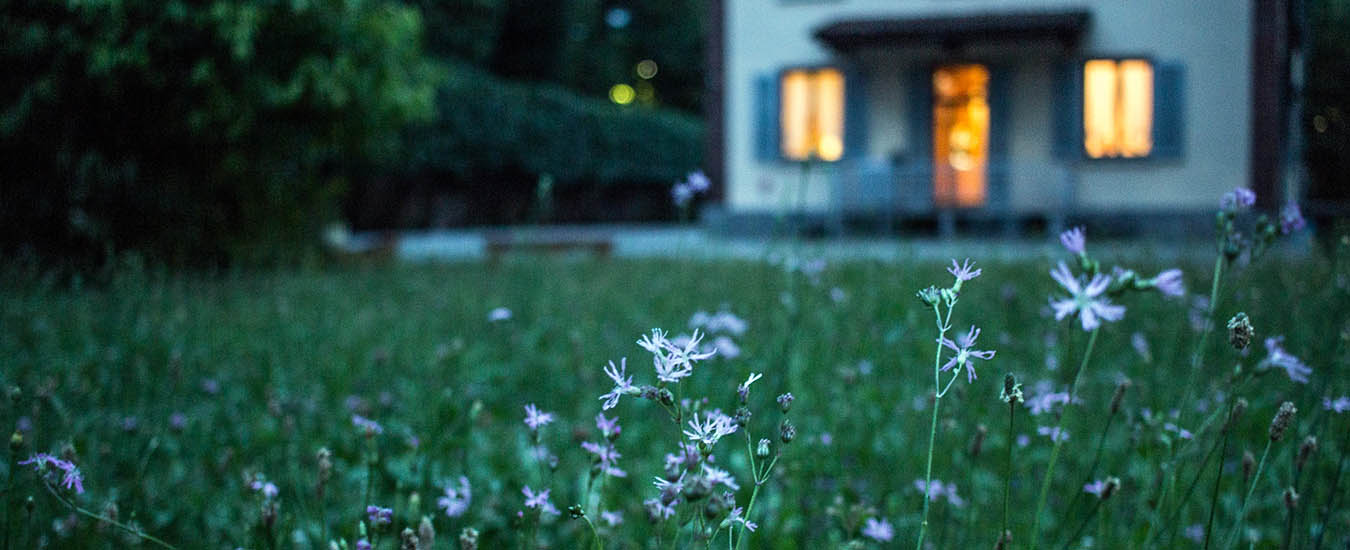Getting to know Kristie Jameson
KRISTIE JAMESON packed up and drove from Ontario to Newfoundland in 2008 with her fiancé, who was going to Memorial University. With a keen interest in food marketing and a degree in business, she got a job as executive director of the Food Security Network of Newfoundland and Labrador, a coalition of organizations and individuals that work to ensure access to adequate, healthy food. This summer, the group is showing a series of films called All Around the Table, based on interviews with 12 seniors from the Avalon Peninsula, who share stories about their food traditions. Saltscapes spoke with Kristie about store-bought food, scrunchions and matrimony.

Q Where did most of your food come from when you were a kid?
A From the store. When I was a teenager, going to the grocery store was one of the few times we got to bond with our parents. It was a pleasant time. I’ve always been passionate about cooking and sharing food with family.
Q When you arrived in Newfoundland, what local foods surprised you?
A There were so many restaurants serving moose; scrunchions and toutons. Cod cheeks and cod tongues. There’s a lot of food that takes a little bit of learning. Now, I can’t get enough pan-fried cod and scrunchions. And toutons are to die for.
Q You grew the Food Security Network to more than 1,000 members. How?
A It is such a huge, glaring issue here. There are real challenges. So many people can see that food is expensive in the grocery store. They can see the use of food banks rising or see their kids not knowing how a carrot is grown.
Q How would you describe the All Around the Table series?
A They have two sides. Stories of the way things were, mixed with detailed ways how to do certain things: this is how you freeze berries, these are the tools we used for weeding. They range from broad stories to specific lessons.
Q What was your objective in making the films?
A When you’re dealing with food security, it’s easy to get bogged down in the challenges we face. Instead, we wanted to focus on one of our greatest assets—heritage and tradition around food in this province, and the fact that the knowledge is still here. We wanted to capture that knowledge, those stories.
Q Are the traditional ways being lost?
A They’re in the process of being lost. There was a shift from wild and homegrown foods to store-bought foods. That shift has happened more recently here than in other provinces. With the 40 to 50 age group, there’s still some stigma around gardening, and harvesting and canning wild foods, it being associated with poverty.
Q Did you hope young people would adopt traditional food methods?
A There’s a desire among young people to return to them, and they can learn from the older generations.
Q What story from the films impressed you most?
A When we brought all the seniors together, they all referenced the same meal plan: your Jiggs’ Dinner on Sunday, Pease Pudding another day. It might have something to do with when foods came into the store. Wanting to use every part of a meal, you’d have something on Sunday. On Monday you’d use the leftovers in the soup.
Q When you’re not thinking about food, what takes up your time?
A Right now, renovating our house and planning our wedding. We bought a house and are getting married in St. John’s this August. We’re planning our lives here.
